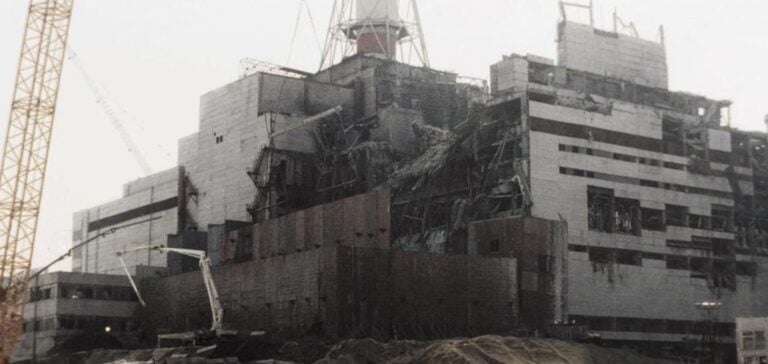Ukraine has taken a crucial step towards securing the Chernobyl nuclear power plant. The Ukrainian parliament has ratified the framework agreement with the EBRD (European Bank for Reconstruction and Development), aimed at financing projects to improve safety in the Chernobyl area, particularly after the damage caused by the Russian invasion. This decision marks an important turning point in the management of one of the world’s most radioactive areas.
Creation of the CICA and the impact of war
The agreement provides for the creation of a mechanism to manage the activities of the ICCA (International Chernobyl Cooperation Account), including securing and dismantling the unstable structures of the original shelter. These projects also aim to restore safety in the exclusion zone and other nuclear facilities in Ukraine, damaged by the Russian occupation. According to Ruslan Strilets, Ukrainian Minister of Environmental Protection and Natural Resources, 18 countries have already contributed 14 million euros, with plans to double this amount.
Priorities and use of funds
The funds will be used to restore lost equipment, improve working conditions for employees and purchase fire-fighting equipment to protect ecosystems. The ICCA, created in November 2020 at the request of the Ukrainian government, has expanded its scope since 2022 to include the restoration of nuclear safety and decommissioning capabilities in the exclusion zone.
Progress and challenges for New Safe Confinement
The first CISC grant signed in March 2023 was to support the shelter’s fire safety and safety analysis. A second agreement in February provides for pre-design activities for NSC (New Safe Confinement) and the dismantling of unstable structures. The NSC, completed in 2017, enables remaining radioactive materials to be dismantled remotely and processed for final disposal.
New Safe Confinement structure and capabilities
The NSC, the largest land mobile structure ever built, measures 257 metres wide, 162 metres long, 108 metres high and weighs 36,000 tonnes. Designed to last 100 years, it will enable the 1986 temporary shelter to be dismantled and radioactive waste to be managed in complete safety. This structure is capable of withstanding extreme temperatures, class three tornadoes and earthquakes of magnitude 6 on the Richter scale.
Long-term outlook
The EBRD emphasizes that the ICCA’s long-term focus will be on supporting sustainable site infrastructure and the safe management of decommissioning infrastructure at Chernobyl. The impacts of the war will require ongoing assessment, but it is clear that Ukraine’s ability to maintain stable operations has been severely compromised, making the challenges of decommissioning considerably more complex.






















